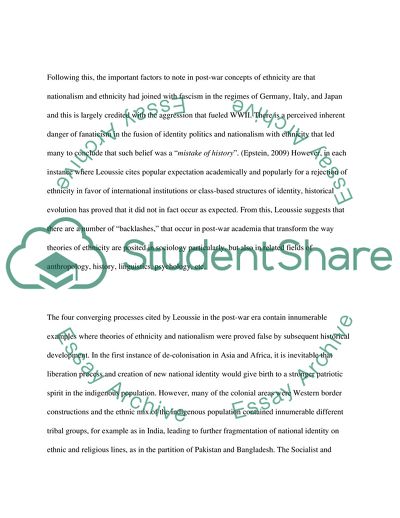Cite this document
(Theories of Ethnicity and Nationalism Essay Example | Topics and Well Written Essays - 1750 words - 1, n.d.)
Theories of Ethnicity and Nationalism Essay Example | Topics and Well Written Essays - 1750 words - 1. https://studentshare.org/sociology/1748939-theories-of-ethnicity-and-nationalism
Theories of Ethnicity and Nationalism Essay Example | Topics and Well Written Essays - 1750 words - 1. https://studentshare.org/sociology/1748939-theories-of-ethnicity-and-nationalism
(Theories of Ethnicity and Nationalism Essay Example | Topics and Well Written Essays - 1750 Words - 1)
Theories of Ethnicity and Nationalism Essay Example | Topics and Well Written Essays - 1750 Words - 1. https://studentshare.org/sociology/1748939-theories-of-ethnicity-and-nationalism.
Theories of Ethnicity and Nationalism Essay Example | Topics and Well Written Essays - 1750 Words - 1. https://studentshare.org/sociology/1748939-theories-of-ethnicity-and-nationalism.
“Theories of Ethnicity and Nationalism Essay Example | Topics and Well Written Essays - 1750 Words - 1”. https://studentshare.org/sociology/1748939-theories-of-ethnicity-and-nationalism.


